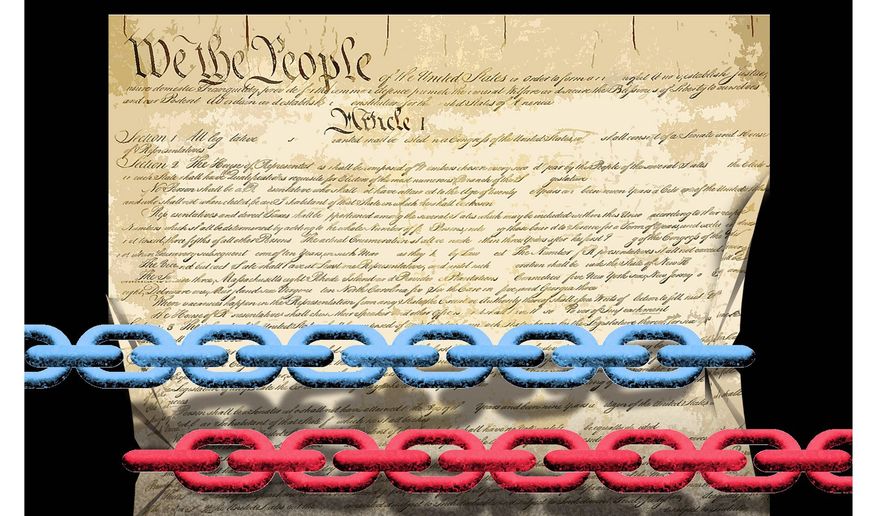OPINION:
In the election of 1860, Abraham Lincoln won the presidency with 39.8% of the vote, the lowest percentage of any person to be inaugurated president.
On Christmas Eve of that same year, South Carolina issued its Declaration of Secession. By the time Lincoln was inaugurated on March 4, 1861, the Southern states had already formed a new government, in large part because they feared that the newly elected federal government would abolish slavery and in part because they believed that the North would not fight to retain the Union.
The irony is, of course, that had the South stayed in the Union, they could have used the ample mechanisms of delay and obstruction embedded in the Constitution to frustrate President Lincoln indefinitely. Lincoln and the Republicans themselves offered assurances that they would protect slavery, including a constitutional amendment preserving it in those places where it was then licit.
But the South was certain of its assessments, and, by leaving, they guaranteed violence, their own destruction and the abolition of slavery.
What does this have to do with our present circumstance?
Our own society has become politicized to an unfortunate degree. In many circumstances, that means that many citizens — on both sides — place a disproportionate emphasis on the political process. They seek redemption, salvation and validation through political outcomes.
That is dangerous and fundamentally contrary to the founding ideals of the United States.
The purpose of a republic characterized by constraints on the government and enumerated rights that are given by God — rather than by the state — is to ensure that shabby and trivial political processes and their usually ephemeral outcomes don’t become central to the public life of the republic and private lives of its citizens.
In short, salvation is not supposed to — and does not — come through political outcomes. Neither does the eschaton.
In each of the last four presidential cycles, the volume and intensity of political rhetoric has suggested that the end of the world will be upon us if a particular candidate wins. The election of Presidents Obama and Trump and now President-elect Joseph R. Biden have been greeted by assurances that the changes they propose would end the republic.
That’s nonsense. The republic survives because its political processes specifically preclude changes in response to fashion or temporary majorities.
When something is a good idea, it survives. When it isn’t, it does not. Nothing is more fleeting than political victories or defeats. Even amendments to the Constitution can be reversed.
Embedded in condemnations of the ideas offered by those with whom we disagree are healthy measures of arrogance. For example, there are those (including me) who are certain that the 17th Amendment was a mistake. A significant chunk of my countrymen disagrees. Is it possible that they may be right and we may be wrong? It most definitely is.
A friend of mine who has worked at senior staff jobs in the House for a number of years recently expressed his very real concern that the Biden team and the new Democratic majority in the House and Senate would pass laws that would preclude the Republicans from gaining back control for years.
Maybe he’s right. I’ve heard that exact sentiment a half-dozen times, though, and somehow the pendulum keeps swinging back and forth. History tells us that rarely does one Congress or one president change the rules of engagement so fundamentally that the losing side is at a disadvantage — or the winning side at an advantage — for more than one or two cycles.
Ironically, one of those times was in the wake of the Civil War, in which the Democrats — who were responsible for the War Between the States — were essentially exiled from the government for a dozen years. But they started the war, and were complicit in, if not directly responsible for, the deaths of almost a million people.
No one election cycle is dispositive in the course of the nation.
When political competition becomes tangled with self-worth and identity, when it becomes about articles of religious faith rather than civic decisions, when it becomes about who is good and bad rather than what is the right or wrong course, the stage is set for conflict.
The South destroyed itself because it did not trust the processes created by the Framers.
Let us — all of us — not make the same mistake.
• Michael McKenna, a columnist for The Washington Times, is the president of MWR Strategies. He was most recently a deputy assistant to the president and deputy director of the Office of Legislative Affairs at the White House.




Please read our comment policy before commenting.